On a terrace balcony in the ancient French city of Arles, near the ruins of a Roman amphitheater and just north of the burial site of a Black saint sacred to the gitanes (French for ‘gypsies’), I’m sipping tea and listening to pop music.
Sia’s ‘Elastic Heart’ is currently on repeat, but methinks I’ll queue up some Rihanna and Beyonce’ in a bit in honor of tomorrow’s pilgrimage procession. Though I find myself wanting Lana Del Rey a bit, and because I’m still thinking of England at the moment I’ll probably throw in some Bloc Party.
Gaugin and Van Gogh both once lived in Arles, and it’s in this city that the latter did most of his paintings. 50,000 devoted Romany make a pilgrimage to the marshlands south of here yearly. There’s a shrine to the Matronae in a cave by the sea. The Roman empire once used this city as a primary fortress from which to conquer and govern the rest of Gaul. There are ancient spirits and shrines and monuments and dead everywhere, and I’m listening to pop music, indulging some new thing my time in England and Wales taught me to embrace.
City of Slaves, City of Radicals: Bristol, May 15th-May 17th

The last night in the home of Alkistis and Peter, I woke in the middle of sleep, growling.
I don’t remember what I was dreaming of, only that I heard growling and woke and realised it’d been me. This happens a bit more often than I’m comfortable admitting, a bit more often than I’m comfortable speaking about when a lover asks about it the next morning. Others talk in their sleep: I growl, sometimes at unseen others I guess, sometimes at contentment. I growl even when waking, rarely noticing that I’ve begun doing it in public spaces until I note someone looking askance at me.
The house was quiet, and I lay there a little longer in the dark, smiling at myself. It’s what I’ve learned to do now, smile rather than cringe. I do something strange or bizarre or clumsy and I smile, because all those other things one might do are utterly unhelpful. Most of us learn to scold ourselves for mistakes or missteps, taught by the host of others who scold on our behalf. “You did that wrong,” they said, though more often than not we already knew. “You know better,” they said, and of course we remind ourselves that we must have. “You’re late–you should have left earlier,” they said, and you punish yourself a little more for being human.
It’s how we shape each other. Capital and Authority need no centrality, no enforcement. We discipline each other quite well already, until which point we learn to discipline ourselves. Sure, it gets us nowhere but drab employment and a restrained life, but we get so good at it that we don’t dare be anything else.
I sometimes suspect that bit of me which growls is the unwrought parts of me, untamed, undisciplined, unwilling to accept admonishment and punishment. And so particularly at it, but also at other parts of me, I’ve lately decided to smile instead.
I smiled, and went back to sleep. Peter woke me in the morning, and they drove me to the station at Ludlow where I waited a train for Bristol where I was to meet the inestimable Jonathan Woolley.

Like most of the people with whom I’ve spent considerable time on this trip, I’d corresponded a lot with Jonathan but had never met him in person. Many (but not all) have been UK writers, all of them Pagan, many of them involved in Gods&Radicals or similar work. Much of the reason I started my pilgrimage in England rather than France was specifically to meet all the writers whose work I’ve admired from across an ocean.
Do you know Jonathan Woolley? You really should. Weave a brilliant mind with a deep soul and profound magical awareness, throw him into a PhD program at Cambridge and give him a considerably charming demeanour, a fierce desire to unravel the mess of Capitalism, stunning fashion sense and mountain-crumbling good looks and you’ve got someone approximating Jonathan.
I was to meet him and another friend at a cafe before checking into my rented room. In the train station, I stared confusedly at the bus schedules, quite befuddled, but just as I turned to ask a stranger for directions, I found Jonathan standing behind me. He’d come to meet me at the station, and after several incoherent greetings and hugs, we walked together through Bristol.
We were on our way to meet Naomi Jacobs. This is her:

Do you know Naomi? You should. She’s also an OBOD druid, a polytheist, and a fierce activist for the disabled.
The three of us talked for hours as afternoon longed into evening. Bristol’s a great city for the conversations we had–the city is full of radicals, was a centre of land reclamation-through-squatting.
It was also, hundreds of years ago, the seat of the British trade in chattel slaves from Africa. As in the United States, much of that history is buried except for the towers and monuments built with the money from expropriated and involuntary labour.
What did we talk about? Everything. It was like this as well with Nina George and Lorna Smithers, again with Alkistis Dimech and Peter Grey outside of Ludlow. It would be again with the next people I would meet, radicals all intensely worried about the state of the world and the complicated relationship of Paganism and witchcraft to Capital’s grinding slaughter. In Manchester, our conversations were coloured by spectral whispers of worker resistance; in the ancient hills of Shropshire it was the ghost of history and extinction events.
In Bristol? The question of hope and the potential for despair. As in the United States, disabled folks are both crushed by and trapped into Capitalist hegemony. Also as in the United States, younger adults live precariously in societies which refuse to acknowledge that working-for-a-living, selling most of your life in return for the ability to survive–is even possible anymore.
In light of the worsening situation for those already most vulnerable to Capital’s whims, Jonathan had asked Naomi a question. She wrote a poem as answer:
We who long for freedom
are still indentured, still indenturing.
But we are also architects.
We build,
stone on stone,
hand in hand,
our fragile, shattered bodies the material
that shapes new ground.
Naomi had traveled from London to meet us and departed early evening. Jonathan and I then met with his friends, one of whom is an anti-fascist Pagan organizer. With them, we discussed the resurgence of Nationalism amongst British druids, including conflicts over fascists attempting to claim sacred sites, just as in Germany. The denialism of white provincial American druids and polytheists that such a thing could ever happen anywhere suddenly seems a bit…suspect.
Speaking to so many anti-capitalist Pagans in such a short time in another country has left me reeling with wonder, awe, and some really disturbing realisations about how utterly nationalistic–even jingoistic–the elders and leaders of American Pagan and polytheist traditions are. The rest of my thoughts on the matter are, for now, my own.
But have some more photos of Bristol. I did not take so many photos of the city as elsewhere. Bristol was mostly words, and closeness, and being a body with another body, and food. All the things I needed most.
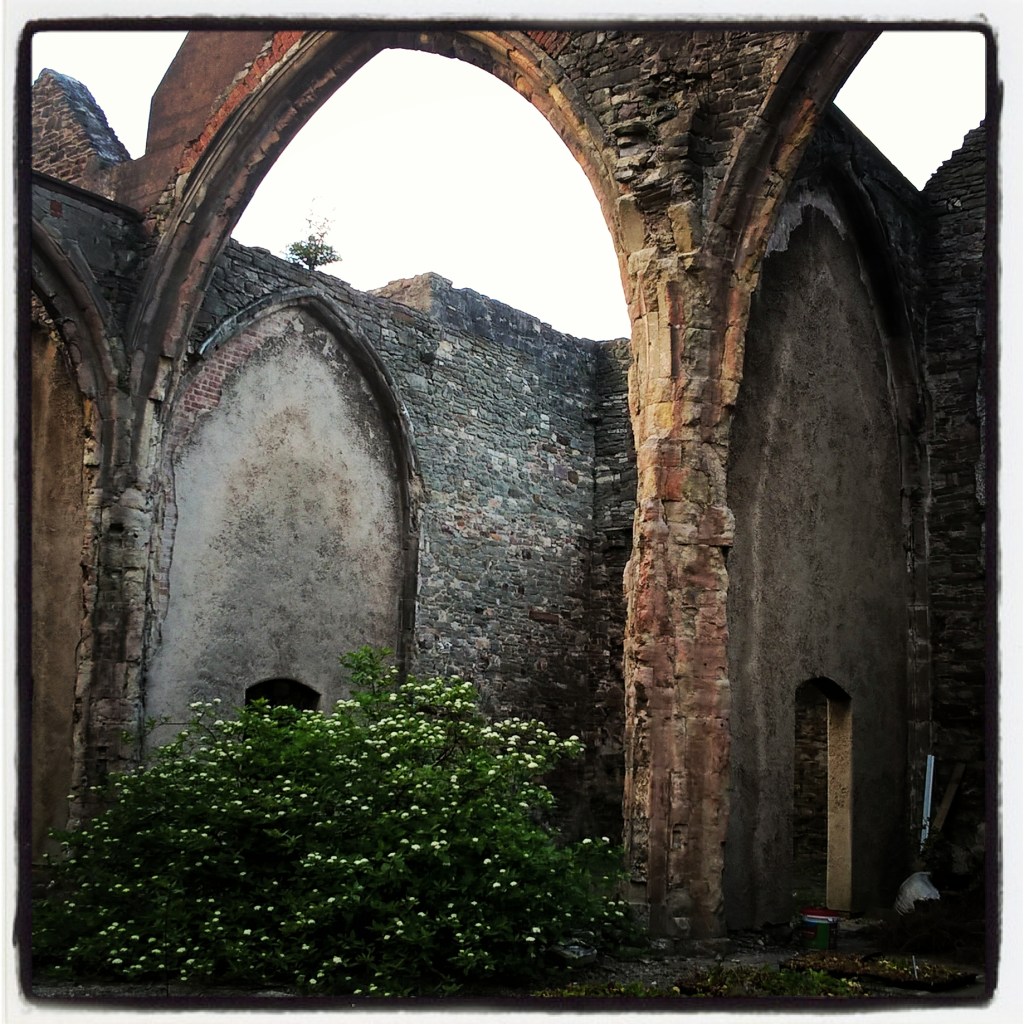

Sulis and Her Sisters: Bath, May 17th to 19th
My last morning in Bristol I woke early after intense dreams, threw my stuff together quickly, and checked out of my rented room. I should here mention, perhaps, that the place was quite English, proper, well-ordered. It was also maybe a little Christian:

I stared quite often at that bit of poetry. It was hard not to re-arrange the words a bit and change “Christ” to any one of several ancient deities currently popular in American polytheism and laugh a bit. Religious fanaticism hardly changes over the centuries.
It seemed that the less time I spent in the room, the better for everyone, so I checked out a bit early and hauled my stuff to a cafe to meet Jonathan again. We left Bristol together for Bath, because he’d wanted to introduce me to one of his gods.
What’s any god, really? A god’s a place, and an existence, and an eternity rooted in the now. Just like us, except more so, and also less so.
You probably already know Sulis. Sulis is heat and water, steam and stone. Sulis smells of iron and earth. Sulis is kind, warm, enveloping. Sulis is a hot bath when you are exhausted, Sulis is the moment a shower is so hot it soaks into your heart.
Sulis is a spring below the city of Bath in Avon. The temple the Romans built around Sulis is where Bath gets its name, but the temple is hardly Sulis, nor precisely the baths. Nor is Sulis Minerva–the Roman interpration of Sulis–quite Sulis, but she’s close.
Sulis is hot tears you cry with your head against 2000 year-old stone. Sulis is also the kiss to another, the kiss from another, feeling the same.
Sulis is fucking wonderful.
I took no photos of Sulis. Sulis seemed too sacred for photos. But I took these of the capstone of the entrance and of the artifacts on display, found by archeologists who dredged the offering pool:


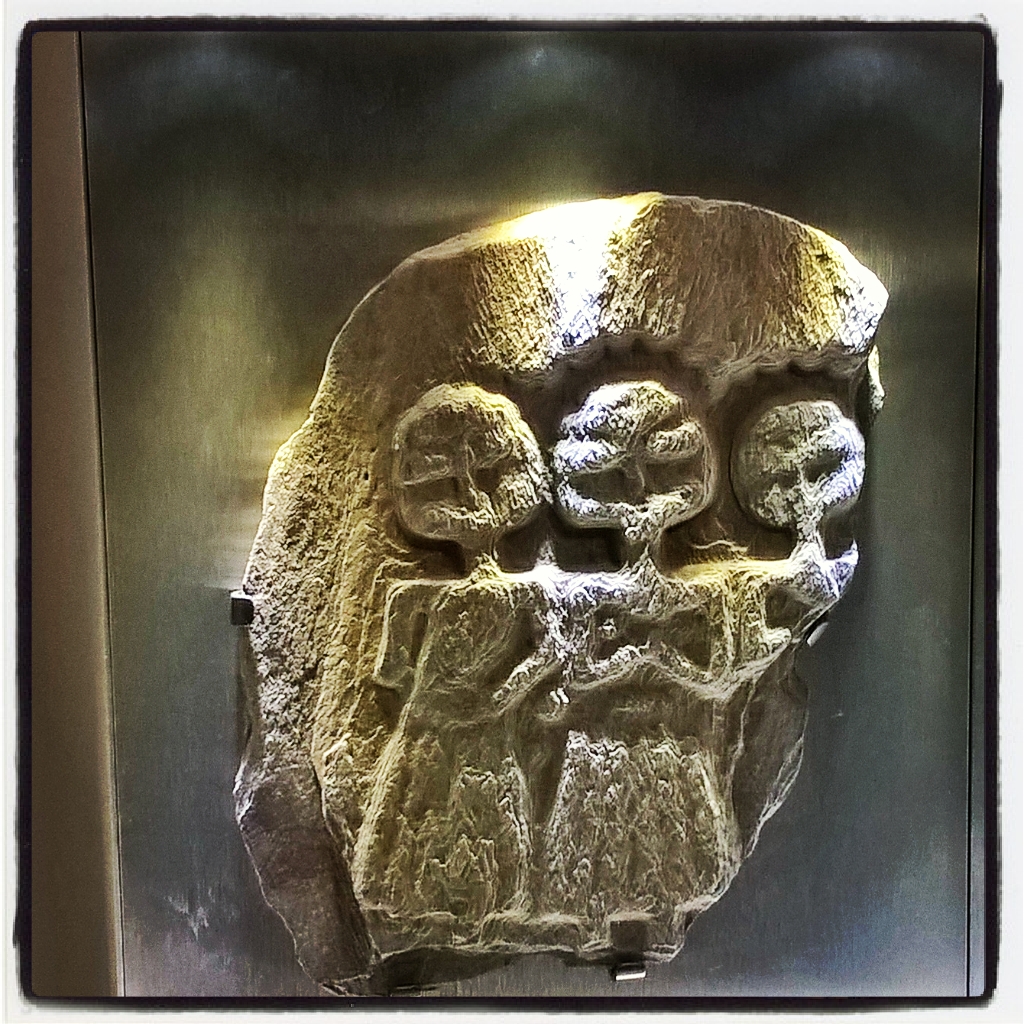
After visiting Sulis, Jonathan and I sat in a cafe while he waited for a train to take him to London. That parting was the saddest of all I’ve experienced thus far on my pilgrimage. His soul is beautiful, his brilliance formidable, but even more so, though we had never met in flesh before, it felt as if we’d always known each other. Like so much else, the experience of talking with him, sitting next to each other on a train or cafe or bar felt like a memory echoing from the future.
I bid him farewell and see-you-later, and then wandered around Bath for a few hours before my next two rendezvous.

Bath is an ancient city rebuilt as a resort town for the wealthy of London. Much of the stonework is only a few hundred years old, older than the United States, certainly, but new compared to Sulis.
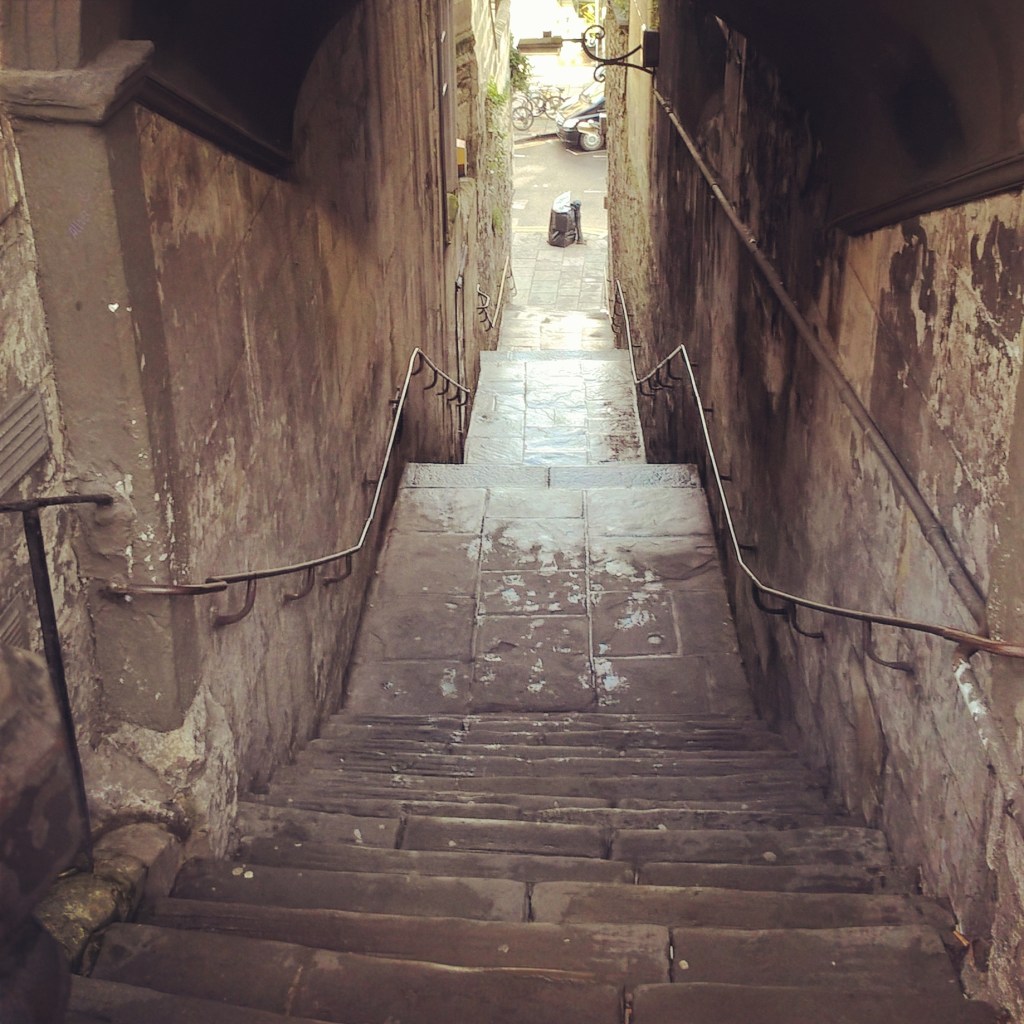
The baths of Sulis were a significant draw, particularly as industrialisation destroyed old ways of being and rich men began to re-create the world they were destroying in a more ordered form. Despite its history, though, Bath is magical regardless, because gods are not easily torn up from a place. Like wildflowers growing in the gaps of paving, gods re-assert themselves when we stop trying to make them what we want them to be.
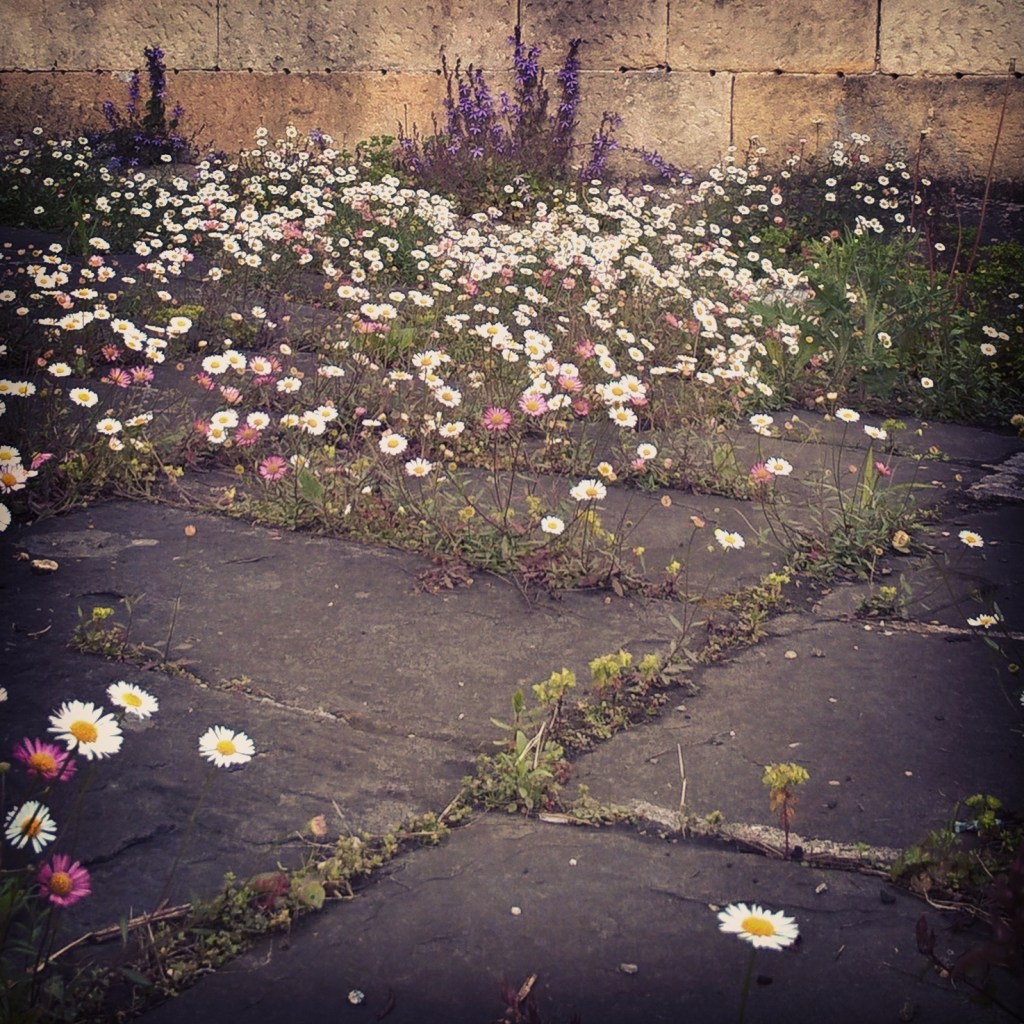
After my walk, I met Yvonne Aburrow. Do you know Yvonne? You should.
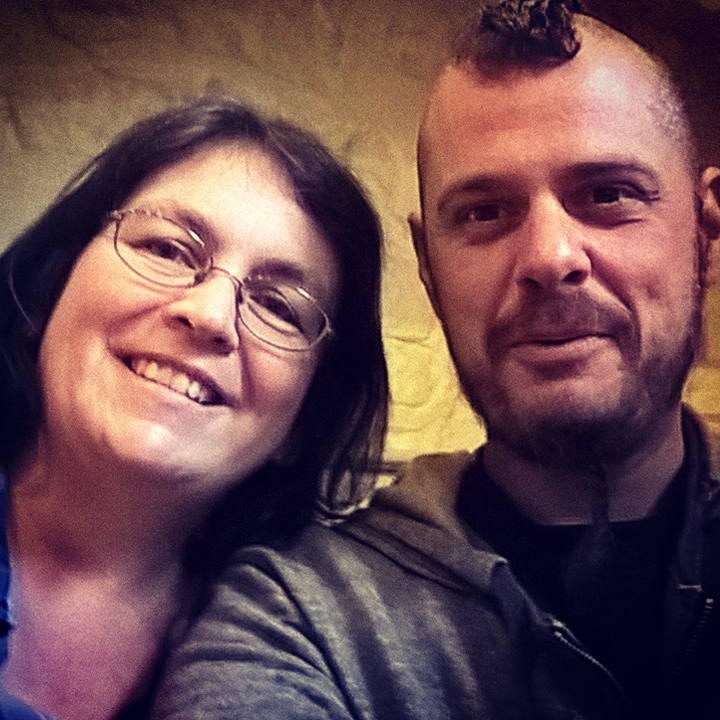
She’s a polytheist and a Wiccan, the author of several books, the founder of Inclusive Wicca, and crafter of one of my favorite poems, Ned Ludd.
She arrived and we ate Nepalese food, sitting side-by-side in an echoing alcove, laughing. She’d originally hoped to meet up with Jonathan and Naomi and I, but instead came to meet me in Bath.
We ate, then moved on to a bar for beer, conspiring mirthfully as we waited for my host to arrive. He did, and then the three of us talked over drinks before Yvonne returned to Oxford.
My host, Mark, is yet another radical English Pagan, but one I’d met in Seattle. He was in town for work and messaged me, taking the chance that I might want to meet a reader of mine. I did.
Do you know Mark? You really ought to. He’s a fantastic host, an energetic man full of fascinating stories. He led me across Bath to his home where I promptly crashed out and, in the morning, we trekked up one of the many spring-soaked hills surrounding the centre of Bath. Sulis is not the only goddess of that vale; her sisters are just as profound, though less revered.
In fact, many of the springs on that hill are blocked and covered, some shunted into reservoirs for the drinking supply, some merely culverted by farmers to keep the paths unmuddied, as this one:
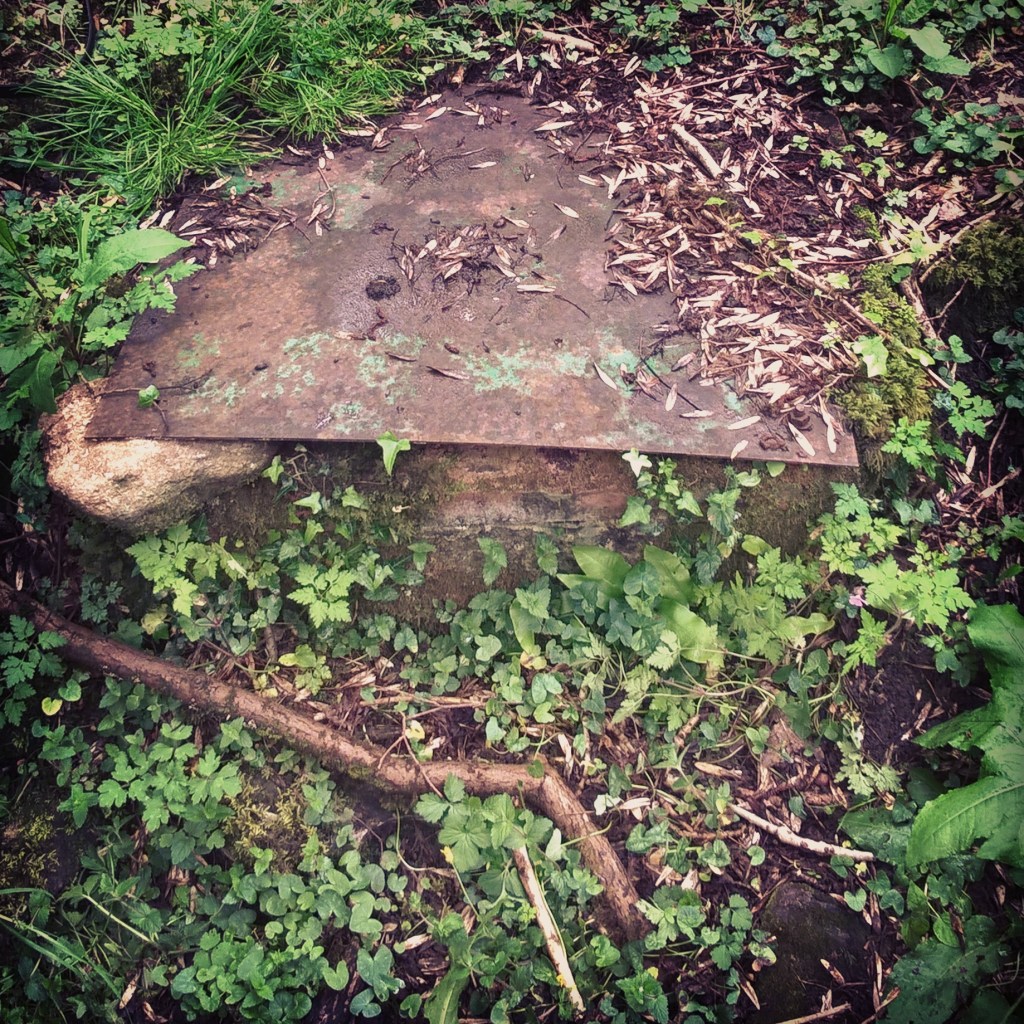
Past the springs are the caves where much of the stone to build Bath was mined. One of them was a bitter place, reeking of despair. Mark lit a candle for the spirits there, as he did for the second we visited, less angry but still unquiet.

We walked back down, stopped at his place for tea, and then had lunch in town. There were about six other things we’d talked about doing, but eventually any pilgrim find his energy faltering. Actually, by Bath I had become utterly exhausted, but not so tired that I couldn’t make dinner for my host, including garlic bread.

That’s the garlic bread described in my (overwhelmingly popular) piece for Gods&Radicals, “Garlic Bread of the Revolution,” served on a slate board with silver stag horns. A bit fitting.
That night I had a very odd dream. I don’t know how to talk about it yet, like many of the other things I’m not saying in these posts. Some strange thing awakens every day I’m here, some new awareness I don’t know what do make of quite yet.
It’s a bit like the growling thing, I guess, except a sense of that I’m growling in response to the world around me, talking back to presences my body can hear that my mind cannot make sense of.
What am I hearing? What am I saying back?
I don’t know yet. But it feels like the same conversation I’ve been having with all these people I’ve finally met across the Atlantic, activists and witches and radicals who are teaching me to speak with a stronger voice that smells of earth, and iron-tinged steam, old stone and revolution.
Previous Pilgrimage Journals:
Can You Tell Me How To Get? (Brooklyn: May 10th-12th)
Across Water Are Other Memories (Manchester, May 12-13th)
What We Are Becoming, Waiting (Shrophire, May 13th-15th)
Next: Cardiff, London, Marseilles
Want to help? Purchasing copies of my books (available in print or digital) or becoming a Patreon supporter will keep me fed and full of stories, as will one-time donations. And thanks!!!
Also! Remember my piece, “You Should Totally Know Her” about Syren Nagakyrie? She now has a Patreon!

Leave a comment